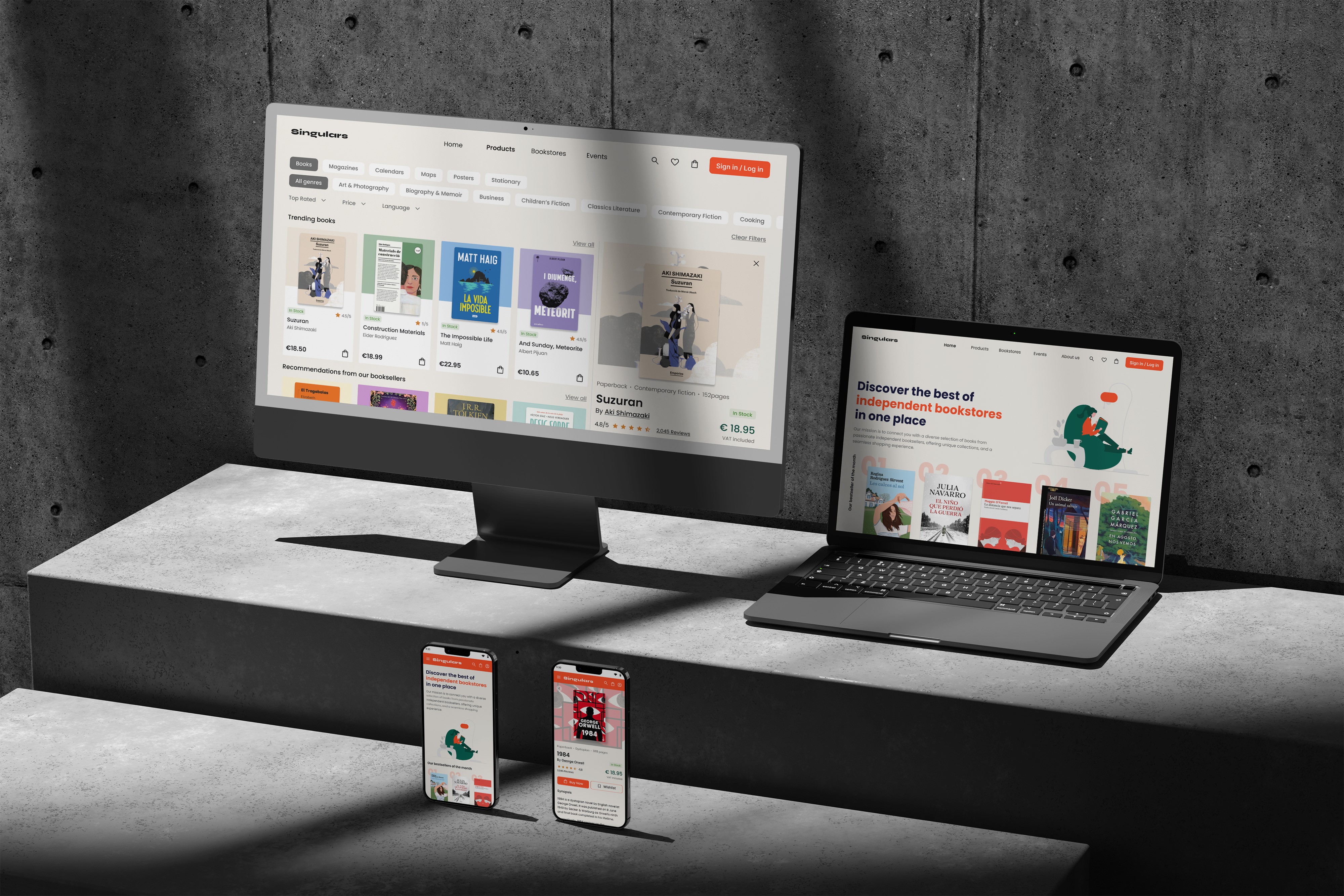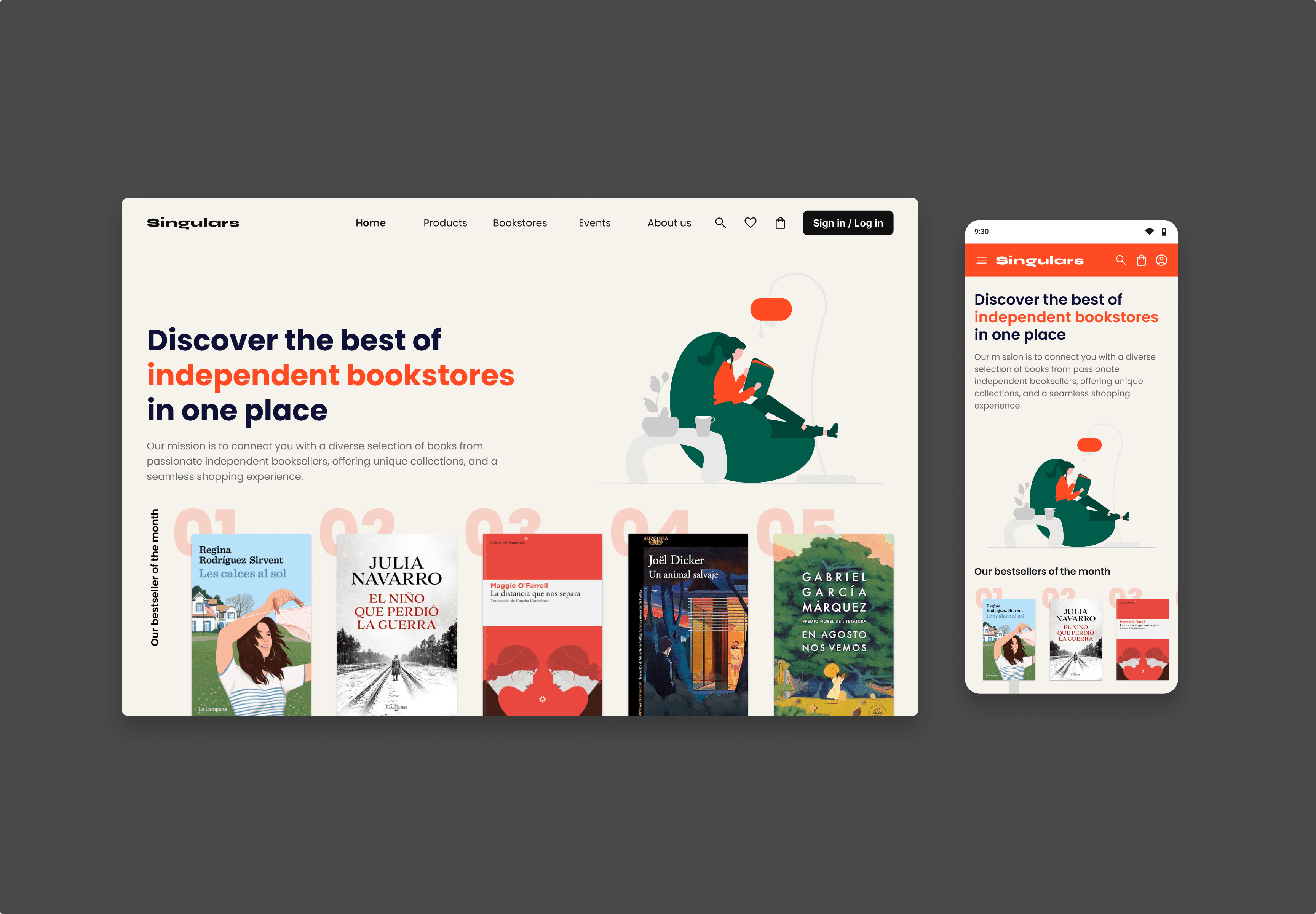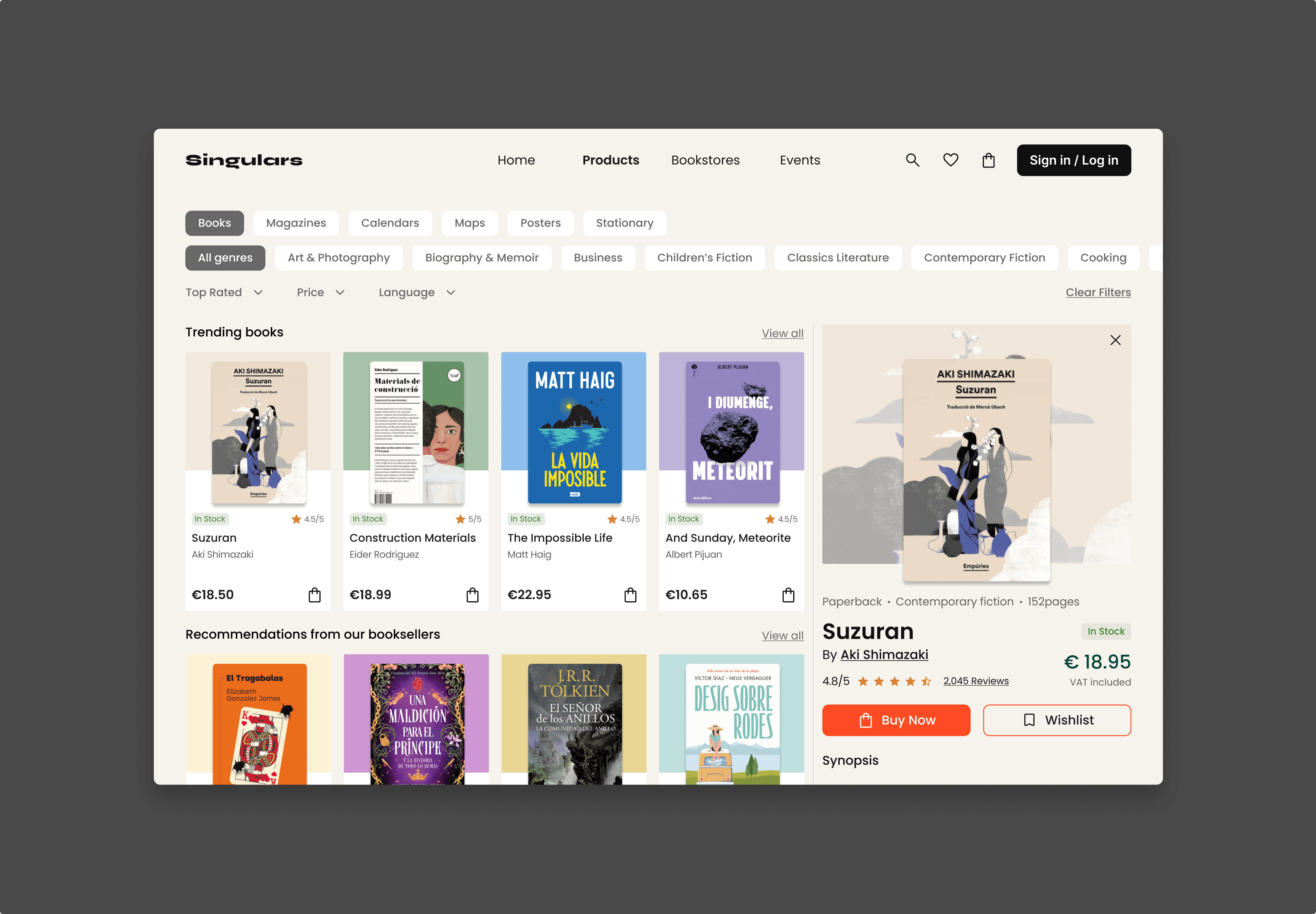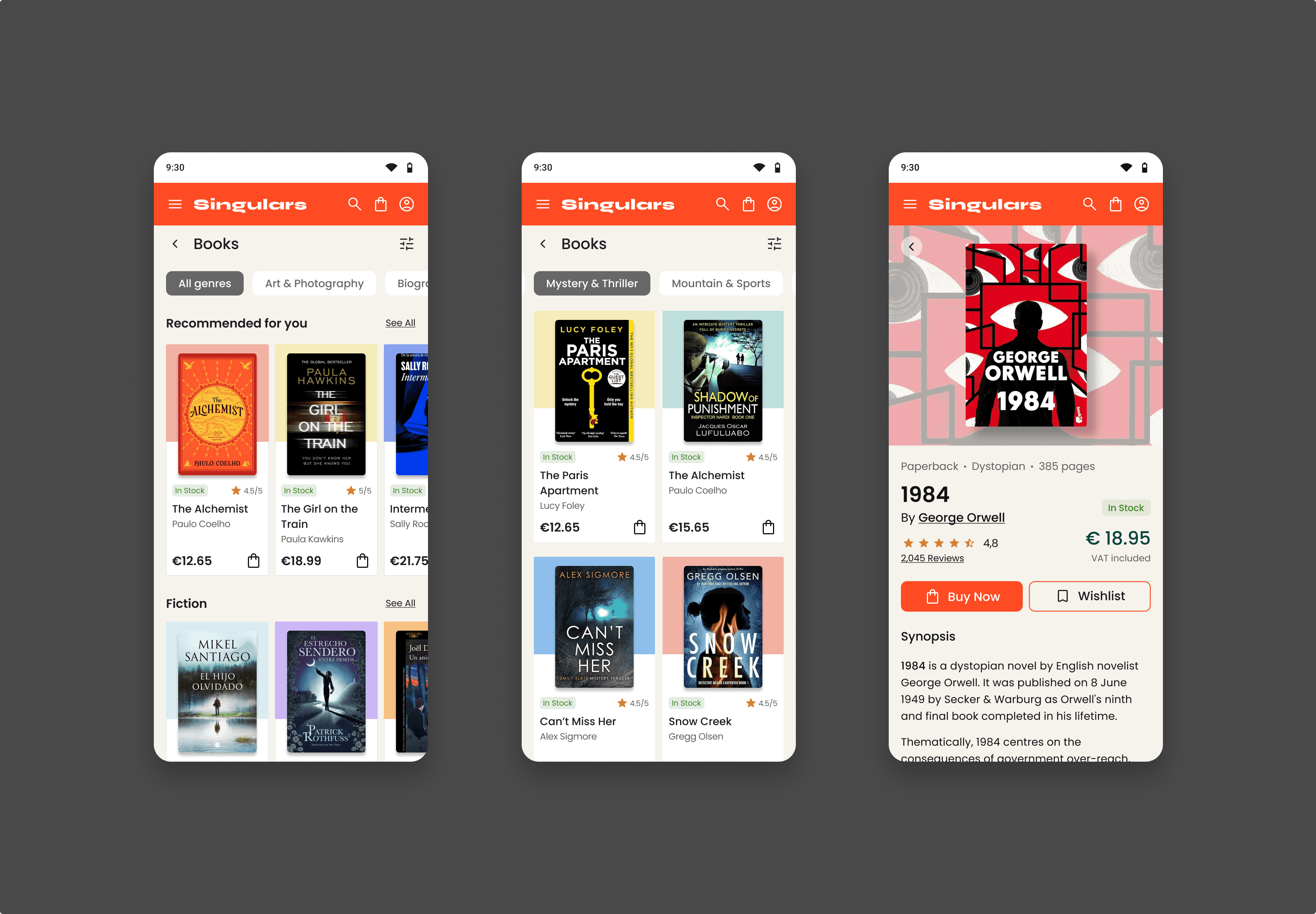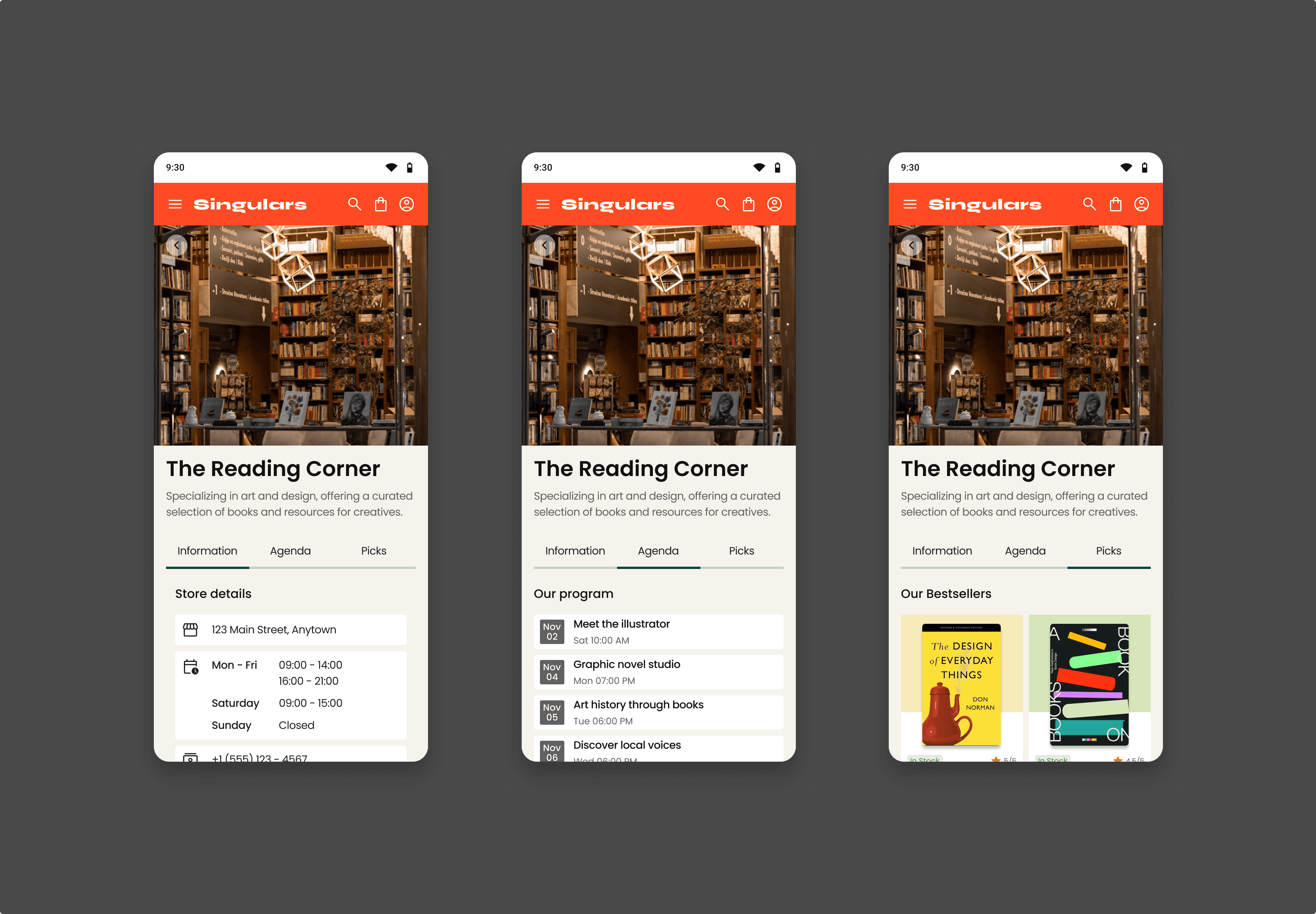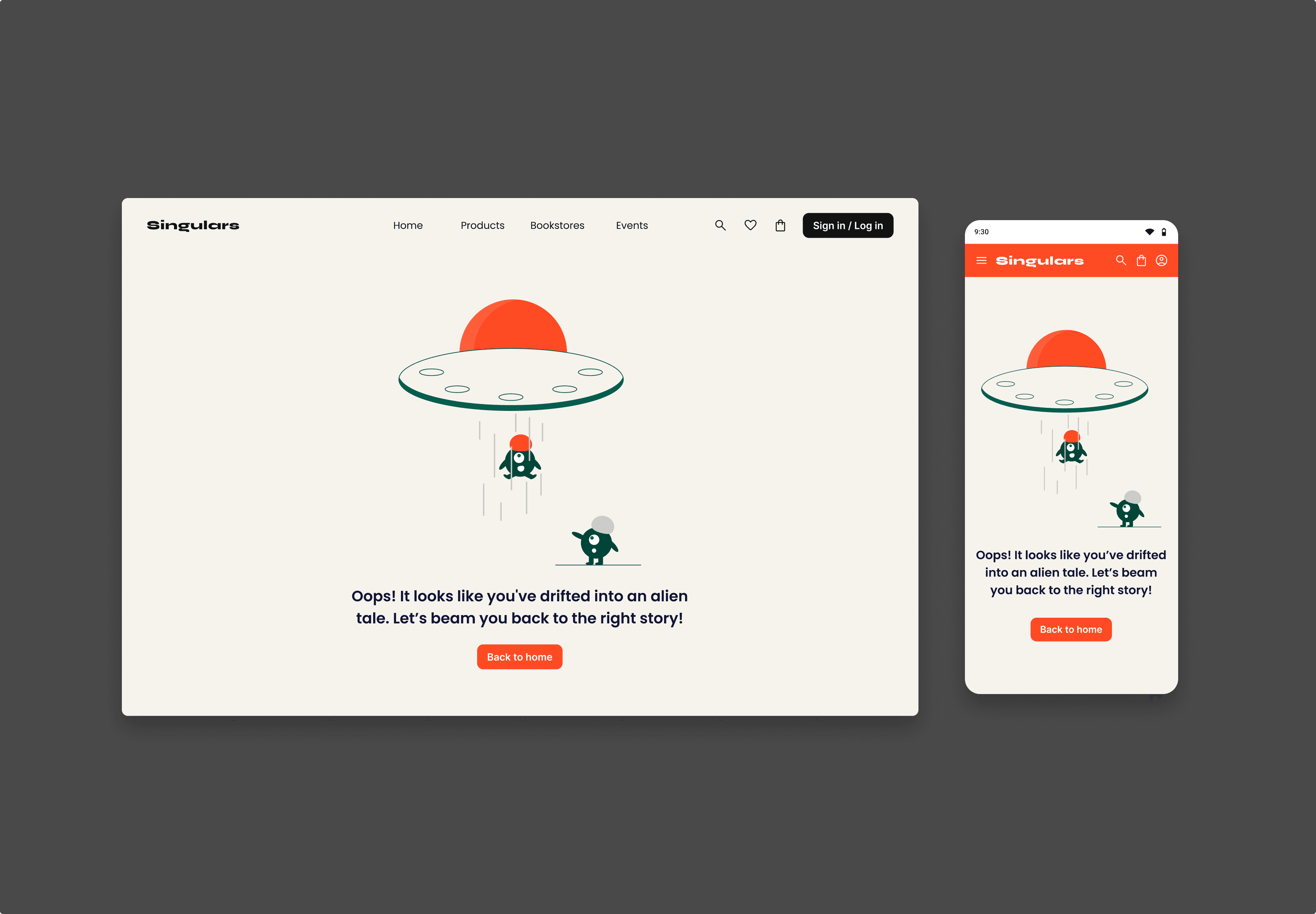Ester Xofra Mateo
Singulars
/23
As large e-commerce platforms and digital formats like eBooks and audiobooks dominate the book industry, small independent bookstores face increasing challenges. Despite their rich offerings and expertise, many struggle to gain visibility online, lacking the tools to compete with larger retailers. Singulars is a platform I designed to bridge this gap. It brings together the inventories of independent bookstores into a single space, giving these businesses the visibility they need to connect with more readers. Beyond just selling books, the platform fosters cultural engagement by promoting literary events and creating personalized reading experiences.
Roles:
Sole UX/UI Designer and Researcher
Type of project:
Web Responsive
Tools:
Figma
Duration:
Product Design, Art Direction
Year:
2023
The Challenge
Independent bookstores have a unique charm and community value, but many struggle to attract customers in the digital age. Readers who want to support local bookstores often can’t find them online, as big e-commerce platforms dominate the market with convenience and scale.
At the same time, these bookstores face challenges beyond selling books. They lack the resources to promote their events or highlight their individuality in a crowded digital landscape. This disconnect between bookstores and potential readers leads to missed opportunities for fostering a community around literature.
Solution
Singulars provides a comprehensive platform that empowers small independent bookstores while enriching the reader’s experience.
Consolidated Inventory: Users can browse and access the combined inventory of independent bookstores, showcasing each store’s unique collections and specialties in one place.
Enhanced Visibility: Independent bookstores gain the tools to stand out in a crowded digital marketplace, promoting their distinct identity and offerings.
Personalized Recommendations: Tailored suggestions based on user preferences help readers discover new books while supporting local stores.
Literary Events and Activities: The platform promotes events like author talks, book signings, and workshops, creating opportunities for cultural engagement and fostering a community of readers.
Design Process
This project started as a simple e-commerce platform for a bookstore. But as a book lover, I felt it could be more impactful. I stepped out of my comfort zone and reached out to local bookstore owners to understand their real needs. Talking directly to them and their customers shifted the project’s direction. I realized they didn’t just need an online store—they needed visibility and a way to engage readers in a meaningful way.
Research Phase
I began by analyzing existing platforms for books and independent bookstores. Most focused solely on selling books and lacked features that showcased what made small bookstores unique. This revealed an opportunity to create a platform that went beyond e-commerce and supported their visibility and connection to readers.
To validate these ideas, I interviewed bookstore owners and readers. Owners emphasized their struggles with inventory management and attracting customers, while readers shared how difficult it was to find local bookstores online. These conversations directly shaped the platform’s features, like consolidated inventories, event promotions, and personalized recommendations.
Definition Phase
In this phase, I focused on creating a structure that addressed both bookstore and reader needs. I designed user flows to simplify navigation for readers while making inventory management intuitive for bookstore owners.
Wireframes were essential in defining the core functionality, focusing on organizing features like inventory browsing, personalized recommendations, and event listings. I aimed to create a layout that was not only easy to use but also captured the charm of independent bookstores.
Design Phase
The final design brought Singulars to life with a warm and approachable aesthetic inspired by the unique atmosphere of small bookstores. I used earthy tones and clean typography to create a sense of discovery and community.
The interface included features like consolidated inventory browsing and personalized recommendations, designed to be engaging and intuitive. I created high-fidelity prototypes and tested them with bookstore owners and readers, gathering feedback to refine the design. This iterative process ensured the platform was functional, easy to use, and aligned with the needs of both user groups.
Conclusions
Singulars was more than a design project—it pushed me to step outside my comfort zone and connect with real users. Initially, the project was supposed to be a simple e-commerce platform for a bookstore. But as a book lover, I wanted to add more value. By speaking directly with bookstore owners and readers, I realized their biggest challenge wasn’t selling books but being visible online and accessible to their community.
These conversations reshaped the project’s direction. It taught me the importance of listening to users and being open to changing course when necessary. It was also the first time I stepped away from my laptop and had direct conversations with business owners and customers, which was both challenging and incredibly rewarding.
This project reinforced my belief that design can do more than solve functional problems—it can foster meaningful connections between businesses and their audiences. Moving forward, I would love to explore how Singulars could further support bookstore owners by integrating easy inventory management tools and expanding features to create an even stronger sense of community.
